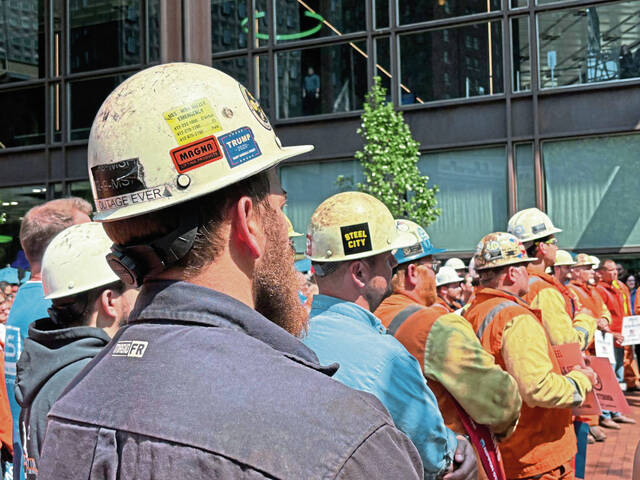In recent weeks, there has been a surprising alignment between political rivals as the presidential candidates from both political parties have doubled down on their opposition to the proposed acquisition of U.S. Steel by Nippon Steel.
On Labor Day, Democratic presidential candidate Vice President Kamala Harris publicly voiced her opposition, following in the footsteps of President Joe Biden, who is reportedly preparing to formally block the deal. Meanwhile, former President Donald Trump has also vowed to prevent the acquisition if reelected and appears to have solidified this position with his selection of Ohio Senator J.D. Vance — one of the loudest critics of the proposed deal — as his running mate.
It’s clear that this issue has become a political football, but such opposition from political leaders raises serious questions for residents of the Keystone State. We must ask ourselves why they would stand in the way of a deal that promises to make U.S. Steel more competitive and protects Pennsylvania’s industrial future, all in a misguided attempt to secure fleeting electoral gains.
Critics of the deal often cite concerns about foreign ownership, but this perspective ignores the realities of our globalized economy. In an era where American companies routinely invest overseas, foreign investment that strengthens domestic industries should be welcomed.
Nippon Steel’s commitment to U.S. Steel isn’t about outsourcing American jobs; it’s about injecting much-needed capital to ensure that American steelworkers can once again compete on the global stage. In fact, the combined company would become the second largest steelmaker in the world and would finally provide American-made steel an opportunity to compete against China’s dominance in the global market.
Nippon Steel has further pledged to honor all collective bargaining agreements with the United Steelworkers, retain U.S. Steel’s headquarters in Pittsburgh and invest nearly $3 billion to modernize the company’s aging mills.
Crucially, this includes a commitment of no less than $1 billion to enhance the competitiveness of the Mon Valley Works, the company’s last steelmaking operation in Pittsburgh and a cornerstone of Pennsylvania’s manufacturing. Such investments aren’t just about numbers on a balance sheet; they’re about securing the livelihoods of over 11,000 workers whose jobs are supported by U.S. Steel. Moreover, it’s about strengthening the supply chain for American manufacturers who rely on domestically produced steel.
The stakes couldn’t be higher. Without such crucial investments, the future of the Mon Valley Works and U.S. Steel’s continued presence in Pennsylvania more broadly may be in doubt. CEO David Burritt has already said that he doesn’t “have the money” to make the necessary upgrades to keep the mill running into the next decade and that if production is shifted to another U.S. Steel facility in Arkansas, the company’s headquarters may very well move out of Pittsburgh and further south as well.
Looking to the future, it is important to recognize that the steel industry, like many others, is at a crossroads. Time and time again in Pennsylvania we have seen good unions jobs disappear as manufacturing hubs anchored by formerly great American companies fail to keep up with global competition and give way to vacant lots or revitalization projects that ultimately mean less opportunities and fewer workers. We now stand at the precipice of such a scenario playing out once again. Political leaders can either embrace the change and investment that will keep the steel industry competitive, or cling to an unsustainable status quo that will inevitably lead to decline.
As someone whose family has been deeply involved with the steel industry for generations, I believe the choice is clear. It is time for political leaders on both sides of the aisle to move beyond political posturing and think about the long-term prosperity of the American worker. This merger represents a rare opportunity to revitalize a core American industry and is a necessary step toward ensuring a steel-strong future for our country. Bringing such a large additional economic win home would send a powerful message to companies around the world that Pennsylvania and America are open for business and welcome investment and innovation.
T.J. Rooney previously served as chair of the Pennsylvania Democratic Party and is a former member of the Pennsylvania House of Representatives.


